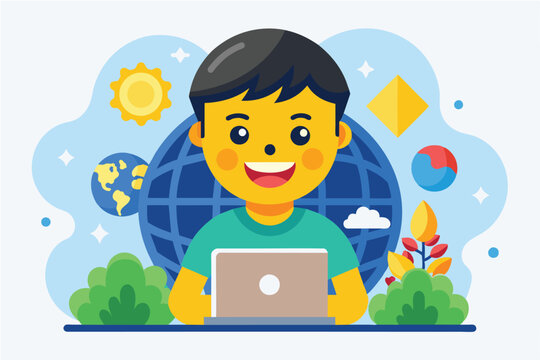
|
||||||
|
|
||||||
|
||||||
|
Online Safety for Parents and Carers |
||||||
|
Hi Resident,
As parents, keeping our children safe online can be incredibly challenging due to the vast and ever evolving digital landscape. With the rise of Social Media, Gaming Platforms, and Instant Messaging apps, children are exposed to a wide range of content and interactions that may not always be appropriate and safe. Parents often struggle to keep up with the latest trends and technologies, making it hard to monitor and control what their children are doing online. Additionally, children can be more tech-savvy than their parents, finding ways to bypass restrictions or hide their online activities. The potential risks - such as cyber bullying, online predators, and exposure to harmful content - further heighten the pressure on parents to find a balancing between protecting their children and respecting their privacy and independence in the digital world.
Some helpful tip for keeping younger children safe online.
Have honest conversations with your children about who they communicate with and how, and who can see what they post online. Explain that anything that goes online - pictures, videos, comments, things they share with others and what others post and share with them and about them - leaves behind a trail of information about them. To make sure they're leaving a positive “digital footprint”, they should be mindful about what they do and say online. Make sure that they understand that discriminatory or inappropriate contact is never acceptable. No one should spread rumours or share hurtful or embarrassing stories or photos. What may seem like a harmless joke to one person can be deeply hurtful to others. If your child experiences something online that makes them feel upset, uncomfortable or scared, encourage them to tell you or a trusted adult immediately. Children often ‘know’ the perpetrators of online harassment or abuse, so it is important to help them to be alert and know how to respond to any problematic behaviours they encounter online. Work with your child to establish rules on how, when and where to use devices.
Check that your child's device is always updated and running the latest software, and that privacy settings are on and configured to minimise data collection so that people don't see any information that you don't want them to see. Help your child learn to keep personal information private. If your privacy settings are not secure, anyone can see your information. Keep webcams covered when not in use. For younger children, tools such as parental controls like safe search, can help keep online experiences positive. Be cautious of free online resources, including educational ones. If your child is asked to provide a photo or their full name, be sure it is a trusted website. Create opportunities for your child to have safe and positive online interactions with friends, family and you. Connecting with others can be an excellent opportunity for you to model kindness and empathy in virtual interactions. Help your child recognise and avoid misinformation and disinformation, age-inappropriate content and content that can potentially cause anxiety or other harm. Introduce them to trustworthy sources of information. Children can be exposed to advertising that may promote unhealthy foods, gender stereotypes or age-inappropriate material. Help them to recognise online ads and use the opportunity to explore together what is wrong with some of the negative messaging you see. Spend time with your child to identify age-appropriate apps, games and other online entertainment. Be alert for apps that may have harmful content or pose privacy risks.
MODEL HEALTHY ONLINE HABITS Promote positive online behaviour by practising it yourself. Be mindful of the example you set and what you share online about your child, including their photos and videos. Encourage your child to be kind online and to support friends and family by sending positive messages or emojis. If they have classes online, encourage them to be respectful of others and to be mindful of what can be seen on camera to maintain privacy. Be alert if your child appears to be upset or secretive with online activities. Reassure them that experiencing abuse or harassment is never their fault and they shouldn’t keep it a secret. Familiarise yourself with their school’s digital learning policies. Seek out local helplines and resources for the latest issues in keeping children safe online and how to report cyber bullying or inappropriate content.
LET THEM HAVE FUN AND EXPRESS THEMSELVES Spending time online can be a great opportunity for your children to be creative, learn, use their voices to share their views and support causes that are important to them. Encourage your child to use resources on the internet to help them get up and get moving, like online exercise videos for children and video games that require physical movement. Remember to balance online activities with an active lifestyle and offline recreation for a healthy balance in all aspects of life.
These tips have definitely helped keep my children safe online, all whilst letting them have fun and be creative with their time. I hope that it can help with keeping your children safe too.
Safe browsing! | ||||||
Reply to this message | ||||||
|
|






